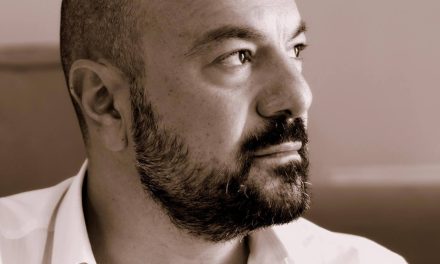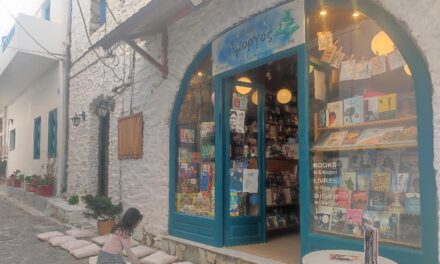Stella Teneketzi was born in Thessaloniki in 1977. Her first book, the short story collection Of her profession was published in 2019 by Apopira Publications. Her second book was recently published by Electra. It is the poetry collection A minute before my funeral, a work that appeared first on the theatre stage and then on paper. She signed it as Rosie Q.
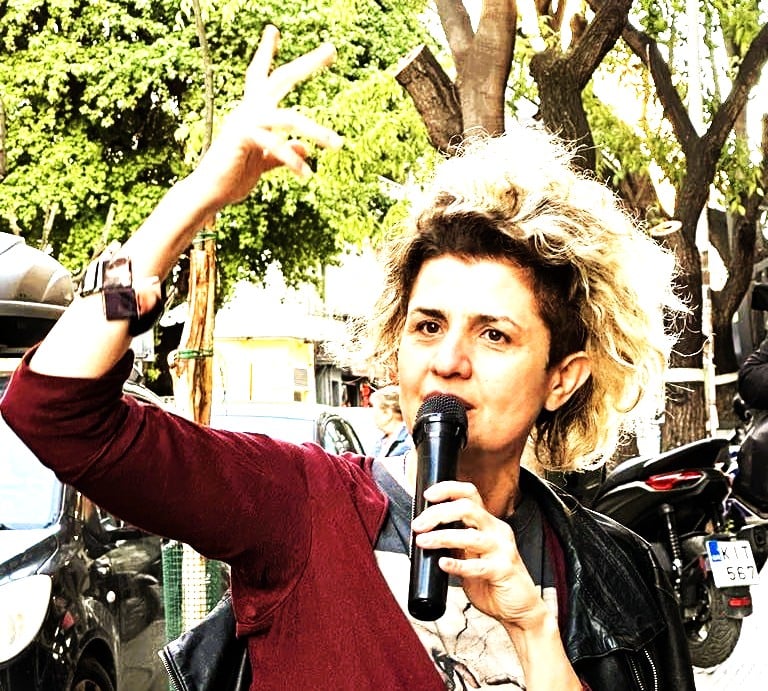
Υοur latest writing venture Λίγο πριν την Κηδεία μου [A minute before my funeral] was quite favorably reviewed upon publication. Tell us a few things about its title and its writer Rosie Q.
Rosie, as a “personality”, emerged through the “pretend to be someone else” command I repeatedly gave myself with the hope that I could get along better with life. This went on for a long time in my everyday life, maybe a year. When the first poem was finally written, a deeper dialogue with her began: a femininity that was not mundane and had not been altered. Each poem in the collection constitutes the burial of a limiting stereotypical view that narrowed me down, that denied me my rightful space. Rosie’s name came up a long time later, on the occasion of the poetry collection’s presentation as a performance – given that it became a performance first, then a book.
Personal and collective traumas, a female perspective of the world, and poetry as a means to create a safe place, a kind of refuge, seem to permeate the poems. How are these issues addressed in your work?
I really like your synopsis for the sake of the question! To this “how”, I believe the poem titled “active relatives want omelette in the kitchen” gives an answer. It says: ” The whole thing was about breaking eggs. The only option is my own incubation. In order to love me, I had to fry myself in front of my whole family”. Yes, the poem became my safe space. At first as a shelter, in the process as a space of visibility.
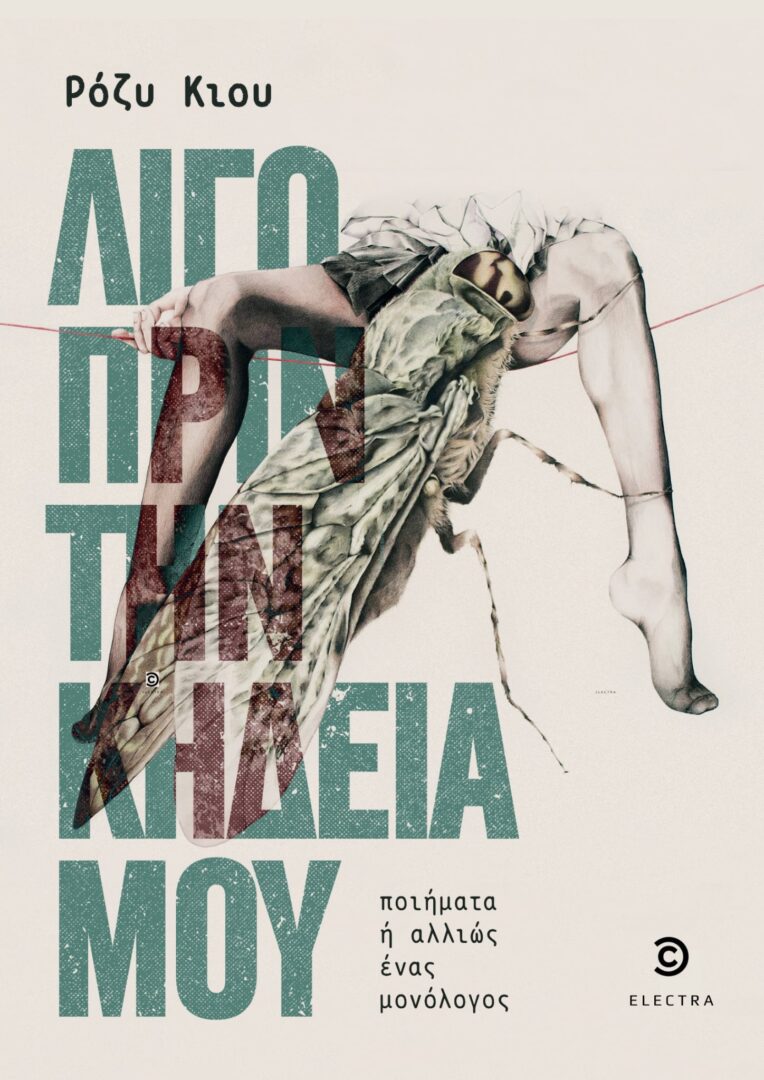
What about the political aspects of gender and their revolutionary potential in literature?
Gender in literature is not just a theme. When we write as we feel and not as we have been taught to feel, then gender becomes an act of resistance. That is, it is a matter of dismantling the self in order to rebuild it as we see fit. Radicality does not arise because a voice cries out, but because the body dares to be present as it is. In the now of writing. In the now of reading. In the now of every “mistake”. This is where the politics of gender happens: when it stops being a (verbal) identity and becomes an everyday act.
More generally, how does literature converse with its surrounding reality? Could it be used to imagine what could be radically different realities, and help form new personal and collective identities within it?
Literature, when it wants to, can function as a crack in normality – a space where words escape the “should” and create the “might”. When we write differently, we begin to imagine differently; and that in itself is a transformation. This is how new languages are born: first, to speak to the deepest part of ourselves, then to connect with the world we want, so that in the process our new world can converse with the old. It is worth saying here that these new languages are of course not only made of words.
Within this framework, how crucial is the role of language? Does it constitute a means to deconstruct and reconstruct the world in our own terms?
Language is the most powerful communication code. Since we are cut off from nature, what has no word hardly exists – I mean, it is not easily understood. On the other hand, our minds are made in such a way that, through words, we can unlearn what restricts us in exactly the same way as we originally learned it, and thus create new meanings, new value systems. In recent years I have been working on educational programs of self-discovery through language, verse in particular, for adolescents, which take place at the Vafopoulio Cultural Center. We constantly see children rewriting themselves and the world – in the way they feel it, in the way they want it. It’s wonderful, it never stops touching me. How creativity and self-expression constitute basic needs just like food.
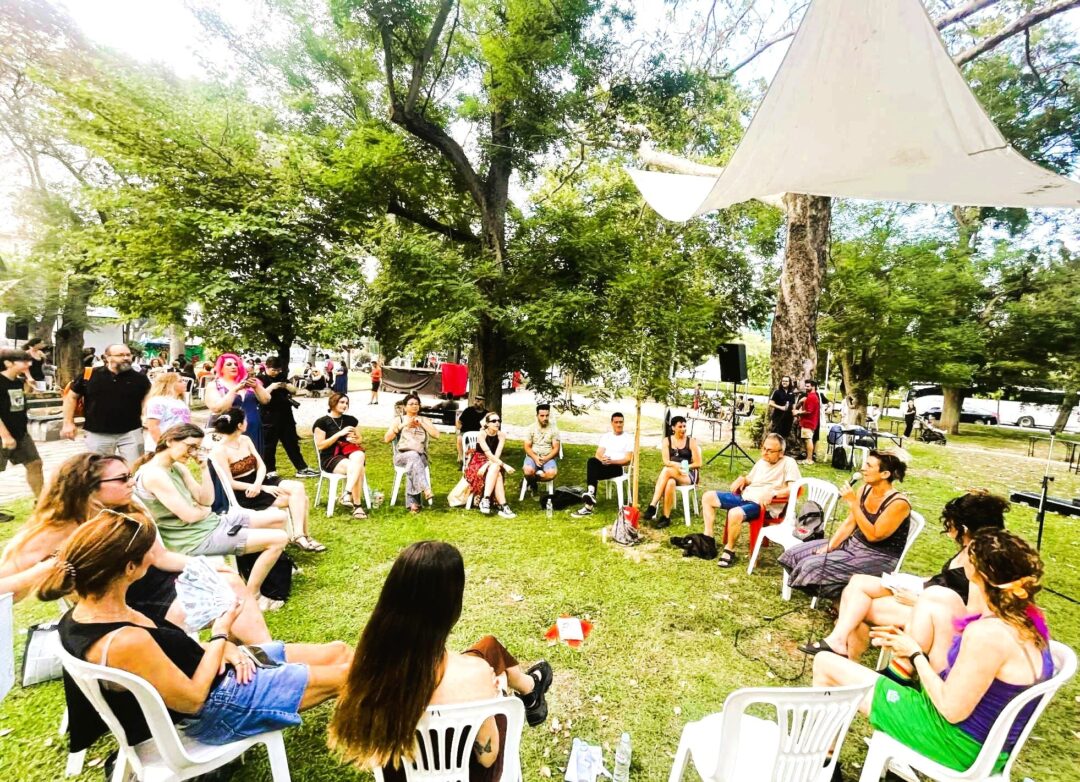
How do contemporary Greek writers converse with global literary trends? Where does the local meet the universal in your writings?
I believe that contemporary Greek writing, as long as it dares turn to the personal without inhibitions, effortlessly touches upon the universal. “I” becomes “we”, as long as it remains true to itself and is not socially constructed. This is what I feel our times demand. Authenticities have no place whatsoever. If the local meets the universal in my own writings I believe it does so through the path of confession. Considering that what I wanted more was to explode. And that outburst, that very personal encounter, with all its cracks, I owe to Rosie.
*Interview by Athina Rossoglou
TAGS: LITERATURE & BOOKS | READING GREECE



